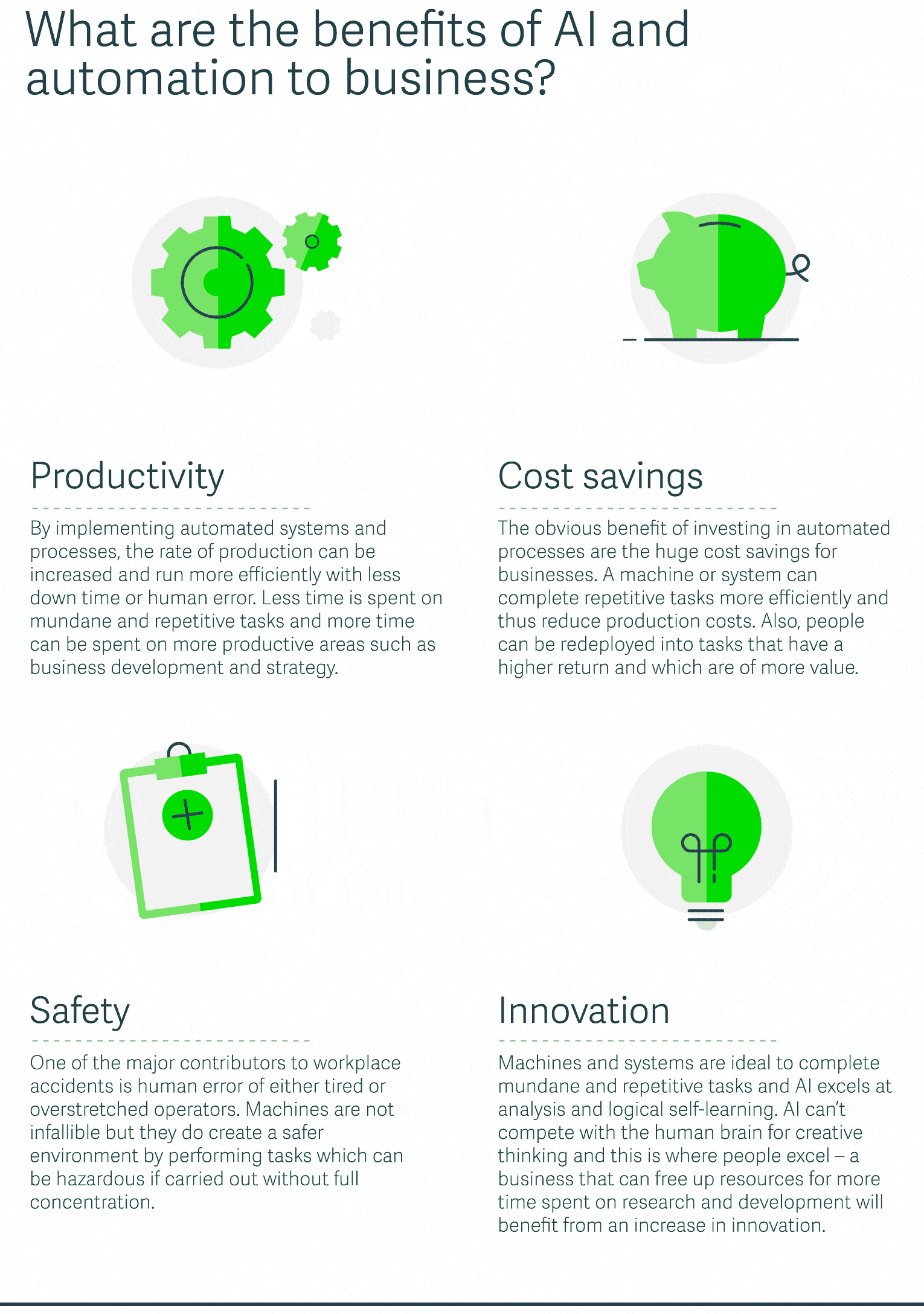The Importance of AI and Automation in the Workplace
The Importance of AI and Automation in the Workplace
- Last Updated: December 2, 2024
Guest Writer
- Last Updated: December 2, 2024



Recent innovations in AI and automation have provided businesses of all sizes fresh opportunities to improve productivity and efficiency. We no longer have to rely on human cognition to sift through mountains of complex information to help provide solutions to complicated problems. Through algorithmic processing, AI has added a new dimension to problem-solving that is benefiting businesses in a range of industries.
How AI Is Helping Industries
One of the most evident benefits of AI and automation is the ability to complete important but repetitive tasks without error. Due to its immunity to boredom and reliable consistency, these monotonous tasks are completed with greater efficiency. Some examples of how AI and automation are influencing each industry are discussed below.

Image Credit: Sage
AI in Healthcare
The healthcare industry is already enjoying the benefits of these recent technological innovations. AI’s capabilities have radically improved the efficacy in detecting tumors for lung and skin cancer. With regards to data processing, AI can analyse large sets of information for the detection of other diseases, thus helping doctors to make more informed decisions.
AI in Education
Educational institutions can use AI to help personalize learning methods to students. Systems can now analyse the way in which students process information and then provide tailored support based on their needs. This is particularly advantageous to students with learning difficulties.
Teachers can also breathe a sigh of relief knowing that automation can complete the repetitive task of marking papers and work. This enables them to invest more time in additional hands-on teaching.
AI in Finance
For banks, in particular, AI can be used as a powerful weapon in combating fraud. AI systems can sift through mountains of data, spot trends and freeze any bank account that signals suspicious activity.
The trading systems have been using AI for years now. The common theme here is AI’s superhuman ability to read data, which has helped people make more informed decisions based on its ability to identify trends and patterns in large datasets that exceed human comprehension. Traders are now enjoying a period of better data analysis as well as the speeding up of trading decisions.

Image Credit: Sage
How Can Small Businesses Take Advantage AI and Automation?
The AI / automation movement is affecting firms big and small. For SMEs, the main benefits are within the automation of repetitive tasks, management and customer-facing assistants.
Automated Emails
Email platforms now enable us to send personalized, automated marketing emails in response to a triggered action. Such a system allows you to send emails that are tailored systematically in a sales cycle to increase engagement, recapture potentially lost customers and push through sales from those who are showing an interest in your product or service.
Team Management
The emergence of new team management platforms, such as Asana, has created a new dimension in the communication and delegation of tasks. Managers are able to facilitate teams in various different locations with greater ease, as well inserting automated reminders and reports to employees.
Slack has become a popular platform in recent times due to its capacity for efficient real-time communication. Automated features include using a bot to reach out to every member of the team through private messaging, which is then shared to the team as a whole. This minimizes the need to host traditional meetings, thus freeing up valuable time to be invested elsewhere.
Written by Scott Mclay, Marketing Executive, Sage
The Most Comprehensive IoT Newsletter for Enterprises
Showcasing the highest-quality content, resources, news, and insights from the world of the Internet of Things. Subscribe to remain informed and up-to-date.
New Podcast Episode

IoT in 2026: Trends and Predictions
Related Articles





